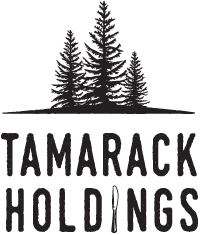I am just back from a week in Ann Arbor and Okemos and would like to share some insights and inspirations I gained from those environments.
I was in Ann Arbor participating in a Zingerman’s Zingtrain training on Open Book Management (OBM). OBM is a process whereby everyone in a company or department assumes (greater) responsibility, defines and identifies goals, and then charts measurements or metrics to see how close they are coming to their goals. The goals are often but not always financial. E.g. How much are we spending for every dollar we make? How timely are our customers paying us? How often do we need to ask for outside funds? How many of X did we sell this past week? Were we able to move XX% of X before it hit its expiration date (or more our internal identified sell-by date)? Non-financial might be customer satisfaction surveys--goals being not only what you want to see as a satisfaction target but also a response rate target. It may sampling regimes that you have your staff participate in; internal “customer” satisfaction surveys. Zingerman’s has a metric they use called the ZXI--or Zingerman’s eXperience Indicator--a service measure based on the Net Promoter Score (an index that measures a customer’s willingness to recommend a vendor’s products or services). Similar to our family of companies Zingerman’s is trying to satisfy multiple bottom lines: financial, social, environmental.
Colleen Valko was so inspired by what she saw at Zingerman’s when down for a leadership training that she started the SoCo board in the break area in TC. The workshop I attended focused significantly on that. The board is a talking piece and centralization of data that a team--be it company or department--deems (often at the beginning of the year) important and relevant to track to chart their progress toward their stated goals. It is important to have data on this board that can be impacted by the staff on a smaller timeframe. E.g. sales volume (esp. In particular categories), spoilage, customer satisfaction, employee satisfaction indexes, etc. A centralized company-wide board is also extremely helpful as a broader indicator but may be harder to see immediate or short-term impact on. Typically appropriate staff will meet in a weekly huddle to discuss the data on the board. Only high points and decisions are reported on in the notes--then notes are shared with all. Anyone unable to attend the meeting sends a proxy in their place. Questions are encouraged and great strides are taken to insure it is a supportive environment so everyone’s voice feels welcomed and safe. This is not a finger-pointing or solely backward looking session. The boards are there not as flies on the wall but as a great opportunity to glean information and later give feedback or ask questions. I fully believe that adaptations of all of these practices will help all of our companies and departments therein, and I encourage us to embrace this practice. Employee awareness and ability to problem-solve will increase as their financial and organizational literacy expands. Profitability will increase!
Though too brief and long overdue I thoroughly enjoyed my time in Okemos with the staffs of EDI and CCF (and am sorry to those I missed--I hope to see you next time--likely December). Aside from my five-hour meeting with Todd and deep dive tour of the warehouse there and all of the warming exchanges that mostly took place in the kitchen/breakroom--of course!--I was struck by what I see as the ongoing opportunity to reverse the technical obstacles impacting both companies to instead simple solutions that allow both to operate as effectively as they can. Will this resolution come via MS Dynamics, a reorienting of companies, customer bases and/or territories, a combination, or of something else that has not been considered yet? I am anxious to see something logical and accessible move forward for all. I was also happy to see and hear about what I would characterize as a striving for simplicity with pretty much everything I saw while there. A desire for systems, communications, everything--to be as logical and simple (what’s the shortest, most logical path between A and B).
Finally, returning to the connections--I am reminded and deeply humbled by the actions and exchanges that remind me that everyone of us is a human being operating in this too frequently overhyped game. It is easy for us to become our projections, our typed words, the rumors of us, our own rumors of ourselves, to become insular--but that source (as well as ourselves) is a human being, an adult child, that is lo and behold more ready for an honest and authentic engagement than we may too often be able to give them, to initiate. It is important for me to remember this, to keep it visible on my dashboard. Simple, authentic connections bring great things. Maybe this is helpful for others.
I am looking forward to the discoveries for us all that lie in the coming weeks and months. Please keep an ear and your eyes out for followups regarding the whiteboards, huddles, budgets vs actuals, what if scenarios, with eyes on increased profitability for all of us in multiple ways.
- Stuart Kunkle


